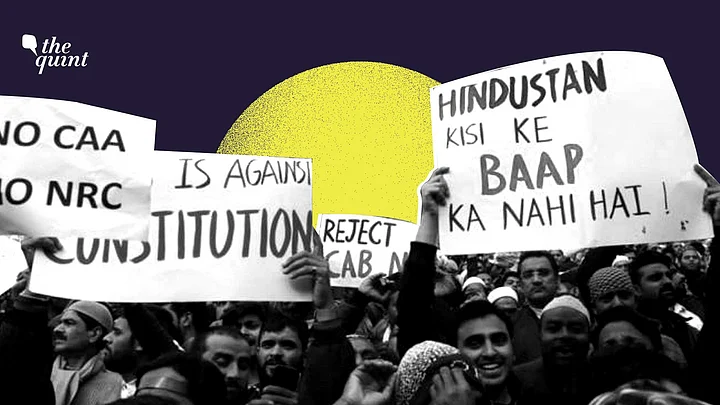The Supreme Court on Monday, 12 September, adjourned the public interest litigation (PILs) challenging the constitutional validity of the controversial Citizenship Amendment Act (CAA) to 31 October.
A bench comprising Chief Justice UU Lalit and Justice S Ravindra Bhat heard several pending PILs, including the lead petition against the CAA by the Indian Union Muslim League (IUML), according to the list of businesses uploaded on the apex court’s website.
The court also sought the Union government's response to pleas challenging the CAA, along with responses from the governments of Assam and Tripura, Law Beat reported.
The CAA seeks to grant citizenship to illegal immigrants belonging to the Hindu, Sikh, Buddhist, Christian, Jain, and Parsi communities who came to the country from Pakistan, Bangladesh, and Afghanistan on or before 31 December 2014.
Muslim immigrants, however, have been excluded.
IUML's petition, which seeks an interim stay on the CAA's implementation, says that the Act violates the fundamental Right to Equality since it makes an exclusion based on religion.
Another plea, filed by Congress leader Jairam Ramesh, says that the amended law is a “brazen attack” on the fundamental rights envisaged under the Constitution and treats “equals as unequal.”
“The impugned Act creates two classifications, viz, classification on basis of religion and the classification on the basis of geography, and both the classifications are completely unreasonable and share no rational nexus to the object of the impugned Act i.e., to provide shelter, safety, and citizenship to communities who in their native country are facing persecution on grounds of religion,” the plea said.
Other petitions challenging the constitutional validity of the CAA have been filed by Rashtriya Janata Dal (RJD) leader Manoj Jha, Trinamool Congress MP Mahua Moitra, All India Majlis-E-Ittehadul Muslimeen (AIMIM) leader Asaduddin Owaisi, and several others.
Where Does the Case Stand?
The Citizenship Amendment Act was passed on 12 December 2019 amid widespread criticism and protests. It came into effect on 10 January 2020.
The Supreme Court, which heard pleas against the CAA in December 2019 and early 2020, refused to stay the Act without hearing the Centre's side of things.
The government filed its response in March insisting that the CAA does not violate any fundamental right or affect the legal, democratic, and secular rights of any Indian citizens.
According to the Centre, the CAA merely seeks to remedy the historical injustice faced by persecuted minorities in Pakistan, Afganistan, and Bangladesh without taking away or whittling down the right of any other person.
On 28 May, 2021, the Centre issued an order giving district collectors in 13 districts with a high migrant population the power to accept citizenship applications from groups identified in the CAA.
The IUML requested an interim stay on this order, but the government argued that the notification “has no relation whatsoever with the CAA.”
(With inputs from Law Beat.)
(At The Quint, we question everything. Play an active role in shaping our journalism by becoming a member today.)
